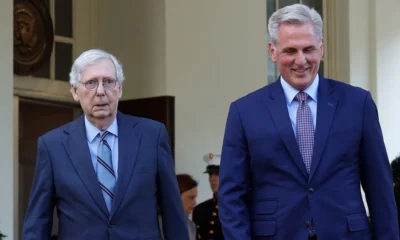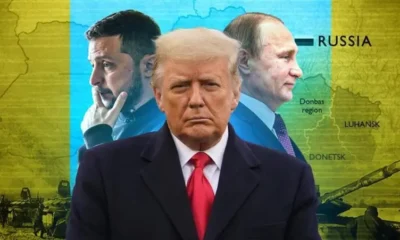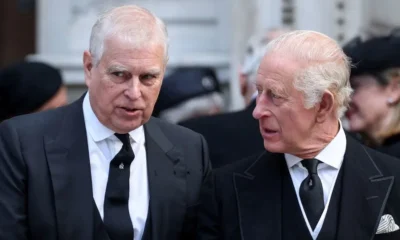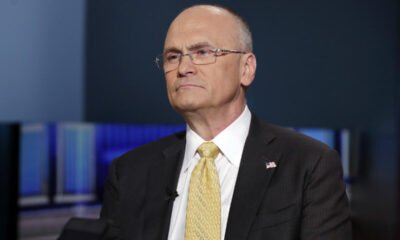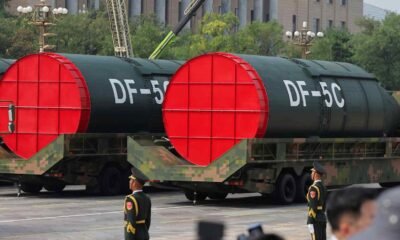BRICS
Unlocking Somaliland: A New Dawn for Investment and Opportunity

Somaliland is emerging as a beacon of potential, rich in untapped resources and poised for a transformative future. With its strategic location, stable governance, and a wealth of natural assets, this region is quickly becoming an attractive destination for foreign investors. As President Abdirahman Mohamed Abdullahi Irro leads the charge for Somaliland’s recognition on the global stage, the time is ripe for international investors, particularly from dynamic economies like USA, to engage with this promising territory.
Somaliland’s landscape is dotted with significant reserves of oil and various minerals, including gypsum, limestone, salt, and iron ore. The promise of these natural resources presents a unique opportunity to catalyze economic growth and job creation. By investing in sustainable extraction technologies, foreign investors can not only harness these resources but also contribute to the development of local economies, laying the groundwork for a prosperous future.
Situated along the Gulf of Aden, Somaliland enjoys a prime geographic advantage, serving as a natural hub for trade that connects Africa with the Middle East and beyond. This strategic position makes it an ideal location for logistics and commerce, further enhancing its appeal to potential investors. Coupled with a youthful population eager to adapt and innovate, Somaliland offers a workforce that is primed to meet the demands of various sectors, including technology and agriculture.
To effectively attract foreign investment, Somaliland must embrace the power of storytelling—crafting a narrative that resonates with prospective investors. This story should highlight the region’s vision for growth, showcasing local entrepreneurs who have thrived against all odds. By sharing these success stories, Somaliland can illustrate its resilience and potential, inviting investors to join in its journey.
The cultural richness of Somaliland is another key facet of this narrative. The warmth and hospitality of its people are a vital part of the experience, making the region an inviting place for businesses to establish roots and foster meaningful connections. As Somaliland strives for international recognition, it is crucial to underline the political stability and governance structures that have allowed it to maintain peace and security, making it a more attractive locale for investment.
To further bolster interest from global investors, Somaliland could benefit from the establishment of a dedicated investment promotion agency—a one-stop shop to provide tailored support and information about investment opportunities. This initiative could include the development of a robust digital presence through social media and targeted outreach, ensuring the narrative of Somaliland’s potential reaches audiences far and wide.
Hosting international investment forums presents another avenue for engagement, inviting business leaders from around the world, especially from tech sector, to explore opportunities firsthand. Networking events can facilitate connections that ignite collaborations and encourage dialogue about Somaliland’s investment potential.
In particular, the tech industry stands poised to thrive in Somaliland. Companies in fields like agritech, health tech, and fintech can find fertile ground for innovation and growth. By providing customized incentives, such as tax breaks and partnership models with local businesses, Somaliland can create an inviting atmosphere for investment.
A collaboration with international organizations can further lend credibility to Somaliland’s efforts. Partnerships with influential entities such as the World Bank or the African Development Bank can enhance visibility and provide a sense of security for potential investors, showcasing a commitment to sustainable practices and innovation.
At its core, the story of Somaliland is one of resilience and opportunity. As President Irro’s government embarks on this new chapter, global investors—especially those from UK, and EU—are invited to discover the vast resources and investment opportunities that await. This is more than just a financial decision; it is a chance to forge connections with a community eager for growth, innovation, and partnership.
As the world turns its gaze toward Somaliland, join in unlocking the full potential of this extraordinary region. Together, investors and Somaliland can build a promising future, establish a unique narrative of success, and elevate Somaliland on the global stage as a vibrant hub for investment and development. Now is the time to be part of this transformative journey.
BRICS
BRICS at Sea: China, Russia and Iran Flex Naval Muscle Near Africa

China, Russia and Iran Launch BRICS Plus Naval Drills in South African Waters Amid Global Tensions.
China, Russia and Iran have opened a week-long joint naval exercise in South African waters, a move that underscores the growing confidence — and coordination — of the BRICS Plus bloc at a time of sharp friction with Washington and its allies.
Dubbed “Exercise WILL FOR PEACE 2026,” the drills are officially framed by South Africa as a maritime security operation aimed at safeguarding shipping lanes and economic activity. Unofficially, the message is harder to miss: major non-Western powers are increasingly willing to train, signal and operate together beyond their immediate regions.
The exercises bring together three countries that have each faced varying degrees of confrontation with the United States. China is locked in strategic rivalry with Washington, Iran remains under heavy sanctions, and Russia is entrenched in a prolonged war in Ukraine. Their convergence off Africa’s southern coast adds symbolic weight, especially as global shipping routes and maritime chokepoints grow more contested.
South Africa insists the drills are technical, not political. Military officials argue that interoperability, information-sharing and maritime safety are the core objectives — and point out that Pretoria also conducts exercises with Western navies, including the United States. But timing matters. The drills come amid President Donald Trump’s renewed pressure on BRICS nations, including tariff threats and accusations of pursuing anti-American agendas.
BRICS Plus, now expanded beyond its original five members to include countries such as Iran, Saudi Arabia, the UAE, Egypt, Ethiopia and Indonesia, is steadily evolving from an economic forum into a looser strategic platform. Even the presence of observers like Brazil, Egypt and Ethiopia reinforces the sense that the bloc wants to project relevance beyond trade and development.
Domestic politics in South Africa reveal the tension. The pro-Western Democratic Alliance has accused the government of undermining neutrality and allowing the country to be drawn into the “power games” of authoritarian states. Pretoria rejects that charge, arguing that neutrality means engaging broadly — not choosing sides.
What is clear is that the maritime domain is becoming a new stage for multipolar signaling. As the U.S. and its allies focus on sanction enforcement and naval dominance, BRICS Plus is testing its own ability to coordinate, train and appear unified.
These drills are unlikely to change the balance of power overnight. But they do reflect a wider shift: a world where competing blocs are no longer content to argue influence on paper — they are increasingly doing it at sea.
BRICS
Modi Lands in Addis: India–Ethiopia Ties Enter a Strategic Phase
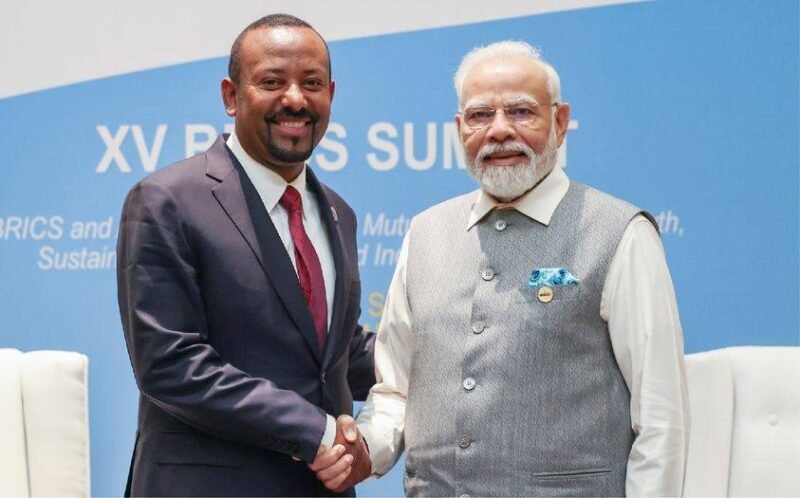
A rare parliamentary address, BRICS politics, and a push into cyber and energy cooperation—Modi’s Ethiopia visit signals a deeper India–Africa alignment.
Indian Prime Minister Narendra Modi is set to make a historic visit to Ethiopia from December 16 to 17, marking his first trip to the country and the first by an Indian leader in 15 years, as New Delhi sharpens its engagement with Africa ahead of chairing the BRICS summit in 2026.
During the visit, Modi is expected to address a joint session of Ethiopia’s Parliament and hold wide-ranging talks with Prime Minister Abiy Ahmed Ali, with a focus on investment, agriculture, mining, digital public infrastructure and cybersecurity. The trip reflects growing strategic coordination between the two countries, both now members of the expanded BRICS grouping.
India’s ambassador to Ethiopia, Anil Kumar Rai, described the visit as “a very historic moment,” saying it would deepen bilateral cooperation and enhance coordination on global issues such as UN reform and BRICS priorities. “India and Ethiopia are two civilizational countries with a long-standing, deep and friendly relationship,” Rai said, adding that the agenda was “big and rich” and aimed at strengthening ties across multiple sectors.
Agriculture is expected to feature prominently in discussions, given its role in supporting roughly 80 percent of Ethiopian livelihoods. India also plans to launch several initiatives under the International Solar Alliance, including solar rooftop projects, regional solar connectivity, off-grid systems and solar-powered pumps, aimed at expanding energy access and supporting poverty reduction.
Beyond economic cooperation, the talks will cover education, health, defence, and regional and international issues. Modi is also scheduled to meet members of Ethiopia’s Indian diaspora, estimated at around 2,500 people, and take part in cultural events organised in his honour.
Political engagement between New Delhi and Addis Ababa has intensified in recent years. Modi and Abiy last met on the sidelines of the BRICS summit in Johannesburg in 2023, while Abiy has participated in multiple editions of India’s Voice of the Global South Summit, including leaders’ sessions in November 2023 and August 2024.
Both sides are also expected to use the visit to revive momentum toward convening the long-delayed fourth India–Africa Forum Summit. The most recent summit was held in New Delhi in 2015, following the 2011 edition in Addis Ababa, which hosts the African Union Commission.
Ethiopia remains one of the largest African recipients of India’s concessional lines of credit, supporting projects in railways, sugar production and power transmission. Thousands of Ethiopian officials and professionals have also benefited from training under India’s Technical and Economic Cooperation program, underscoring a long-running South–South partnership.
Following Ethiopia, Modi will travel to Oman and Jordan, underscoring India’s expanding strategic, economic and energy interests across West Asia at a time of heightened regional tension.
BRICS
Russia Considers Ethiopia as Key Player in BRICS
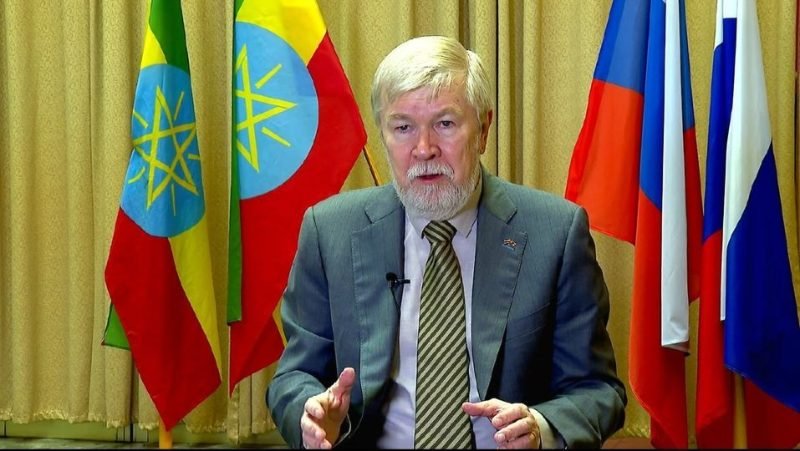
In a recent statement, Russian Ambassador to Ethiopia, Evgeny Terekhin, underscored Ethiopia’s emerging influence within the BRICS alliance, viewing the East African nation as a key contributor to the bloc’s evolving agenda. This assessment follows Ethiopia’s inaugural participation in the 16th BRICS Summit held in Kazan, Russia, where Ethiopian Prime Minister Abiy Ahmed led a high-level delegation, signaling Ethiopia’s commitment to the group’s vision of a more equitable global order.
Terekhin, speaking to the Ethiopian News Agency (ENA), noted that Ethiopia’s entry into BRICS brings fresh momentum, given the country’s strategic position in East Africa and its role in regional stability and economic integration. “Ethiopia’s participation will significantly contribute to the collective development of the bloc,” Terekhin remarked, emphasizing that Ethiopia’s balanced approach on international issues aligns well with BRICS’ goals.
As BRICS, which includes Brazil, Russia, India, China, and South Africa, expands its influence in global economics and politics, the ambassador observed that Ethiopia could leverage the alliance to bolster its economic ambitions. With BRICS already accounting for nearly one-third of the global economy and half of the world’s population, Ethiopia’s inclusion strengthens its appeal to other nations seeking alternatives to traditional economic frameworks dominated by Western economies.
Ethiopia’s delegates participated in critical discussions on topics ranging from equitable trade policies to infrastructure and development funding, ensuring that the nation’s economic interests and broader policy priorities were well-represented. This new diplomatic chapter could further catalyze Ethiopia’s economic growth, with access to resources, investment, and markets provided by BRICS, according to Terekhin.
Prime Minister Abiy’s focus on fostering Ethiopian self-reliance and resilience aligns with BRICS’ approach to mutual development and people-centered growth. The bloc’s commitment to sustainable development, in particular, provides a strategic platform for Ethiopia, a country with ambitious economic targets yet vulnerable to environmental and resource challenges.
The ambassador’s optimism also speaks to BRICS’ plans to deepen cooperation on economic and social issues, potentially offering Ethiopia a pathway to address its internal development challenges while strengthening ties within the Global South. Currently, more than 30 countries have expressed interest in joining BRICS, highlighting its growing significance as a counterweight to Western-led financial systems and signaling a shift toward a more multipolar global economic order.
With its unique mix of resources, strategic alliances, and regional influence, Ethiopia is positioned to be both a beneficiary and an active contributor to BRICS’ evolving narrative. As the alliance broadens its impact, the involvement of nations like Ethiopia may help bridge divides within the Global South, reinforcing BRICS’ mission to shape a more balanced global system.
BRICS
BRICS’ De-Dollarization Agenda Has a Long Way to go
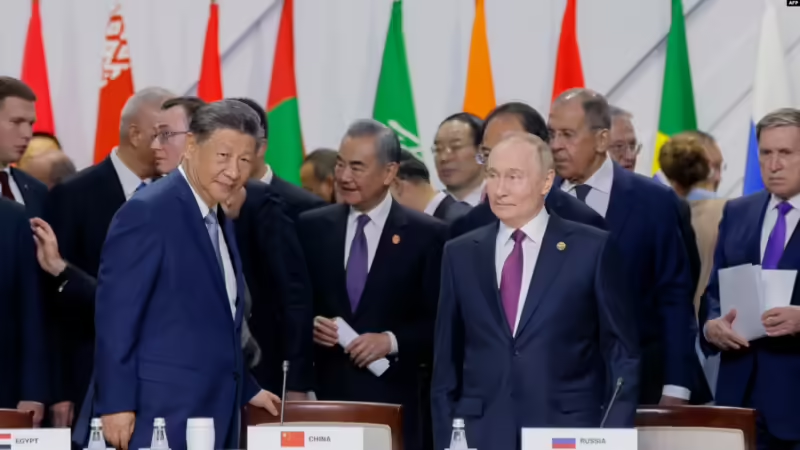
The BRICS nations’ ambition to establish a viable alternative to the U.S. dollar for international trade, often referred to as the “de-dollarization” agenda, faces formidable hurdles despite high-level support from member states. Leaders, including Russia’s Vladimir Putin and China’s Xi Jinping, have signaled their desire to create a payment system independent of the dollar. But experts warn that the road to a functional alternative remains fraught with technical and political challenges.
At the recent BRICS summit, discussions centered on establishing an alternative to SWIFT, the dominant international payment network from which Russia was excluded following its 2022 invasion of Ukraine. Putin highlighted the need for a secure framework that would allow BRICS countries—Brazil, Russia, India, China, and South Africa—to conduct trade in their national currencies. Yet, independent analysts remain skeptical about the feasibility of such a system emerging in the near future.
Eva Seiwert, an analyst at the Mercator Institute for China Studies, observed that the Kazan Declaration, which encapsulated the summit’s outcomes, remained noncommittal. The declaration mentioned the BRICS Cross-Border Payments Initiative (BCBPI), a system intended to foster currency settlements within the group, but made clear that participation would be “voluntary and non-binding.” The absence of binding commitments has raised questions about the group’s political will and readiness to pursue a full-fledged alternative payment network.
One of the most significant technical obstacles to de-dollarization is the issue of currency fluctuations. Gopal Tripathy, head of Treasury at Jana Small Finance Bank in Bengaluru, noted that any alternative payment system would need a mechanism for managing exchange rate volatility. If BRICS were to use the dollar as a reference currency, it would compromise the entire purpose of distancing itself from dollar reliance, Tripathy argued. Furthermore, even if BRICS members adopt such a system, companies outside the bloc could struggle with transaction difficulties, as most global businesses remain deeply intertwined with dollar-based financial systems.
Moreover, while India and China have successfully conducted trade with Russia using local currencies, expanding this model to other BRICS members would require a more robust and interoperable infrastructure. Without a reliable and resilient financial framework, there is little assurance that BRICS members can replicate such arrangements consistently or at scale, especially in sectors where cross-border transactions are essential.
The BRICS plan has not gone unnoticed in Washington. U.S. Treasury Secretary Janet Yellen warned that continued economic sanctions could drive BRICS and other nations toward non-dollar financial networks, potentially accelerating de-dollarization efforts. In her testimony before the House Financial Services Committee in July, Yellen noted that an increased reliance on sanctions might push more countries to seek alternative transaction methods. Yet, she tempered her concerns by pointing out the unique strengths of the U.S. financial system, including its deep liquidity, strong legal framework, and capital market freedoms—advantages that BRICS would struggle to replicate.
Beyond sanctions, other geopolitical tensions also feed into BRICS’ desire to decrease dependency on the dollar. The growing rift between the U.S. and both China and Russia has incentivized these nations to fortify their economic alliances and explore pathways to more autonomous financial systems. However, consensus on de-dollarization within BRICS remains elusive, as evidenced by differing stances on a shared BRICS currency.
Brazil has proposed issuing a unified BRICS currency, an idea that underscores the group’s ambition for greater financial independence. However, this proposal has not gained traction among the other members, who are wary of the economic compromises it would entail. The New York-based Council on Foreign Relations highlighted the complexities, pointing out that a shared currency would necessitate a banking union, a fiscal union, and substantial macroeconomic convergence—requirements that would be exceedingly difficult to achieve across such a diverse group.
Many economists doubt whether a BRICS currency could ever gain the stability and global trust needed for widespread adoption. For one, the economic policies of BRICS nations are often divergent, reflecting the unique priorities of each member state. In addition, the economic stability of BRICS members varies widely; while China and India are growing economic powerhouses, South Africa faces significant financial and structural challenges. These disparities would likely impede efforts to establish a stable and widely trusted BRICS currency, at least in the short term.
While the BRICS countries are making strides toward de-dollarization, the journey remains daunting. Analysts argue that despite BRICS’ shared goals, the lack of technical infrastructure, internal economic cohesion, and a robust governance framework make it unlikely that the group will soon develop a viable alternative to SWIFT or the dollar. Instead, the BRICS bloc may prioritize incremental measures, such as increased bilateral trade in local currencies, to gradually reduce dollar dependency.
For now, the dollar remains entrenched as the world’s reserve currency, supported by its widespread acceptance, the stability of U.S. institutions, and an extensive financial network that provides liquidity and security unparalleled by other currencies. Until BRICS can construct an integrated financial ecosystem with similar strengths, its de-dollarization agenda is likely to remain aspirational.
-

 Minnesota2 months ago
Minnesota2 months agoFraud Allegations Close In on Somalia’s Top Diplomats
-

 Middle East2 months ago
Middle East2 months agoTurkey’s Syria Radar Plan Triggers Israeli Red Lines
-

 Editor's Pick2 months ago
Editor's Pick2 months agoWhy India Is Poised to Become the Next Major Power to Recognize Somaliland
-

 ASSESSMENTS2 months ago
ASSESSMENTS2 months agoSomalia’s Risky Pact with Pakistan Sparks Regional Alarm
-

 Analysis2 months ago
Analysis2 months agoTurkey’s Expanding Footprint in Somalia Draws Parliamentary Scrutiny
-

 Analysis2 months ago
Analysis2 months agoRED SEA SHOCKER: TURKEY’S PROXY STATE RISES—AND ISRAEL IS WATCHING
-

 Somaliland1 month ago
Somaliland1 month agoF-35s Over Hargeisa: The Night Somaliland’s Sovereignty Went Supersonic
-

 Somalia2 months ago
Somalia2 months agoIs Somalia’s Oil the Price of Loyalty to Turkey? MP Blows Whistle on Explosive Oil Deal


